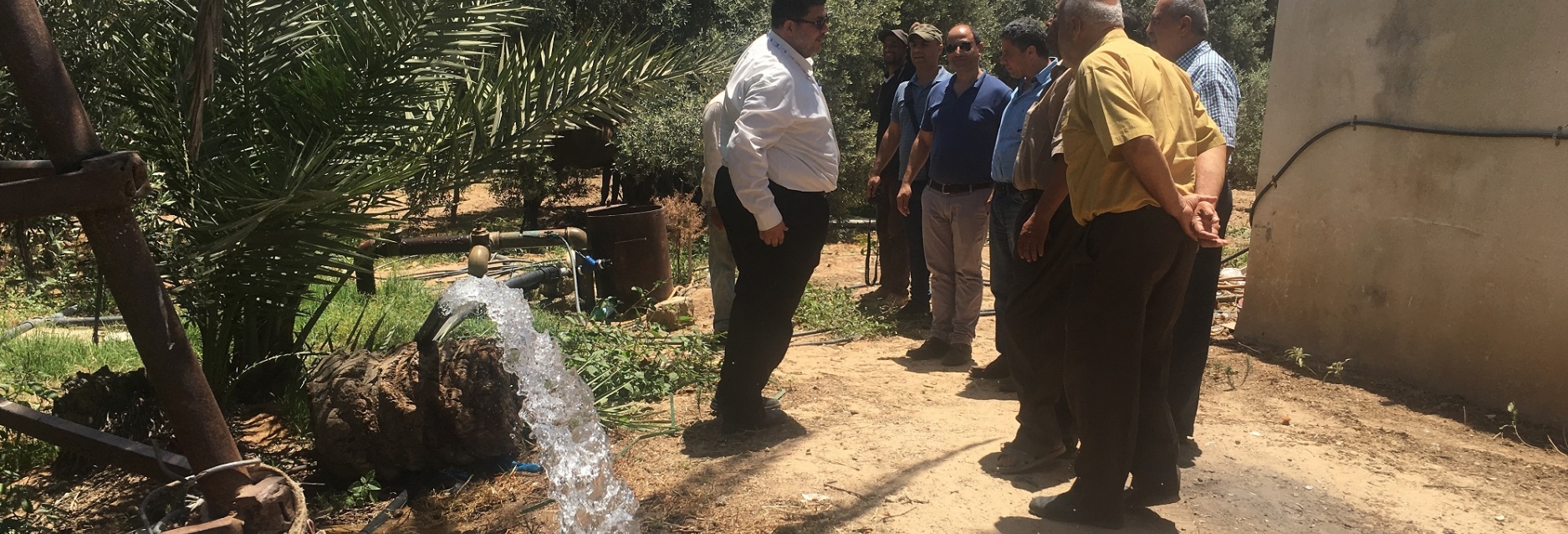
Due to the electricity crisis in the Gaza Strip and the power outage of more than 18 hours a day, Jalal Quz’at suffered from losses in some agricultural crops because of his inability to provide sufficient water to the plants. As such, Quz’at stopped cultivating more than 50 dunums, i.e. about half the area of his land. In order to be able to irrigate the remaining area of this land, Jalal would wait until midnight to receive electric power, while at other times, he would be obliged to pay 500 ILS a day to rent an electric power supply device to irrigate his land in order to avoid substantial losses. Moreover, Jalal started growing wheat and barley only in the winter season because of the water crisis.
Jalal found out about the “Utilising Solar/Photovoltaic Energy to Operate Agricultural Wells and Pumping Systems” project, implemented by the NDC in partnership with the Palestinian Al-Nakheel Association for Progress and Development. He first heard about the project from some friends who saw the project advertisement in social media and then from one of his brothers who saw the announcement one of the mosques’ bulletin boards. Jalal prepared all the necessary paperwork and submitted an application for the project. His application met all the conditions and standards of the project and a field visit was conducted to verify the content of the application. This field visit was held by a committee comprised of NDC, Al-Nakheel Association, and a local committee member. This was followed by a visit from the Technical Consultant of the project to determine the solar angles and the needed schedule of quantities to install the solar energy system.
The NDC and Al-Nakheel Association met with the Ministry of Agriculture to review the lists nominated by the Ministry. During this meeting, the Ministry approved the application of farmer Jalal Quz’at. Mr. Quz’at was very cooperative and participated in digging the locations for solar cell bases during the contractor’s installation of the solar energy system for the well, with the solar energy system currently working from 9 a.m. until 5:00 p.m.
Consequently, farmer Jalal Quz’at and his brothers decided to completely re-cultivate their land and distribute the surplus water to the neighbouring farmers and houses to mitigate the significant shortage of water resulting from lack of electricity. This also improved the economic situation of Jalal and his brothers and they were able to pay the electric bill which is about 1,500 ILS per month. It is now possible for them to cultivate their land without any problems despite the electricity crisis in the Gaza Strip.
